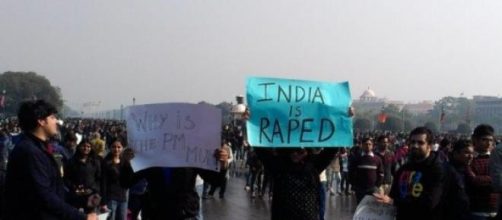A documentary on yet another Indian rape
"India's daughter", directed by Leslee Udwin, investigates a gang rape and murder of a 23-year-old Indian woman, Jyoti Singh, that took place in 2012. Back when it happened, the murder had caused national outrage with millions of Indians taking to the streets to protest against such common acts of violence against women.
The documentary features one of the rapists, Mukesh Singh, who is now in prison and is sentenced to death for the rape and murder of the young woman. He claims that women are responsible for their own rape, caused by the clothes they wear, the activities they choose to engage in and the times of the day they go out alone.
His point of view represents many Indian men's thoughts on women and rape - something the Indian government refuses to mediatize.
The British documentary was scheduled for screening in India and other countries on March 8th, International Women's Day. On Tuesday, however, the India's Information and Broadcasting Ministry ordered national television channels not to air the documentary.
As a response, the BBC aired it on Wednesday night, prior to its scheduled date.
Why such turmoil against the broadcast?
According to the Indian authorities, the documentary aims at maligning India's reputation by emphasizing only the negative aspects of its society. Even worse, the broadcast of the rapists' statements would be acting as a platform to justify their acts, and in fine, promote rape in the country.
The debate has been subsequently relayed on social media, with the hashtags #IndiasDaughter, #NirbhayaInsulted and #DontRapeAgain.
How to react in the face of such rape crisis?
Whilst the government's position is defended by some on social media platforms, many others cry out at the outrageousness of their comments.
No, documentaries do not glorify rapists' and murderers' acts. They do not particularly point at India for its weaknesses, either. Rather, documentaries such as "India's Daughter" provoke the audience to think, to act and react.
According to the Times of India, a woman is raped every 30 seconds in the country. The failure to stop this rape crisis must be spoken of and relayed by the media on a global scale so that awareness pushes for change.

